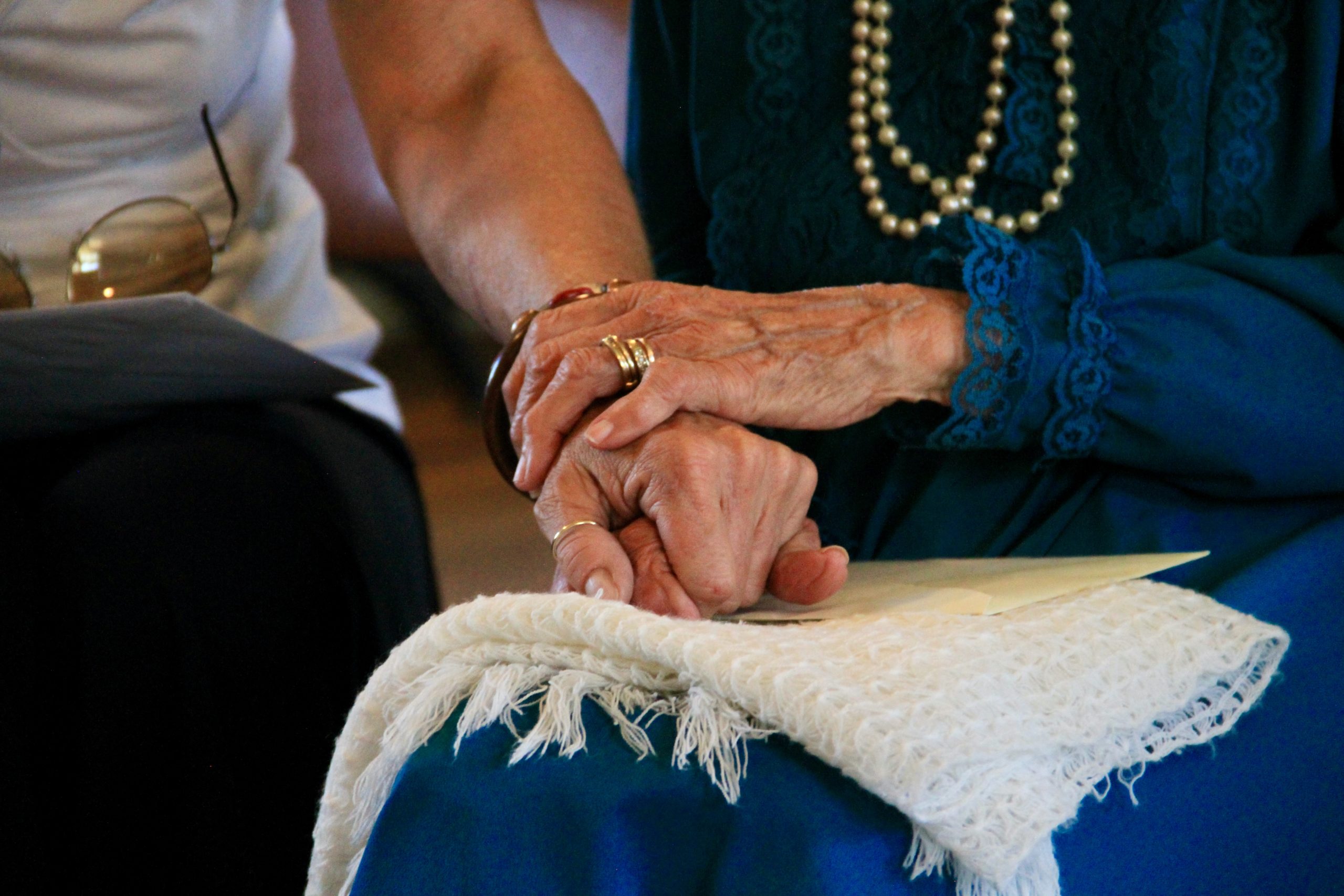Freya’s Story
Our next story comes from Freya Sledding, Therapy Service Manager
Can you tell us a bit about your role?
Hello, my name is Freya. I am currently in a therapy management role and work at Airedale Foundation Trust.
Through my career as a working mum I have juggled bringing up a family in addition to working for the NHS since 1994. I have been very lucky and had supportive managers who when I have required facilitated me to flex my working.
As my children grew up this need reduced, and I began feeling less need for the flexibilities I had to call upon. Actually, this couldn’t be further from the truth.
My mum was diagnosed with dementia around three years ago and was a very independent lady who lived alone, enjoyed holidays and had an active social life.
Although we lived locally, she was always busy with planned activities but made her regular visit to my house to catch up in-between phone calls. If we fast forward 3 years, the outlook is very different.
She is on the cusp of just about coping living alone. She has moved and is in a warden-controlled ground floor flat with a cleaner, befriending service and between myself and my sister provide daily pop in visits to care for her. She is unable to holiday without someone attending with her so again my sister and I share that responsibility.
Can you tell us about your role as a working carer?
My sister was made redundant at the start of the pandemic so alongside a very part time job manages the majority of mums care which involves daily administration of medication, dealing with correspondence, attending appointments, shopping taking to dementia groups and social activities to name a view.
As a working carer I was lucky that my manager and organisation supported mine and my family’s needs.
Together with the support of respite we manage to keep my mum at home and hope we can do this for as long as possible. I try to support my sister my taking on duties that I can do out of working hours such as meal preparation, sorting out respite, lasting power of attorney, emails and correspondence .
This often extends out of my expertise .. last weekend was spent repairing the TV that she had fiddled with, fixing her wardrobe and reassuring her about my sister going away. The needs can be varied and at time bizarre! It’s often the unplanned care that causes most distress or flexibility.
Last year my sister’s daughter became very ill and for a short time I had to do more.
What support do you receive from work?
Having employers and managers who understand this makes such a difference.
As I write this my sister is away and we are juggling respite with a new care agency.
The responsibility and burden of being a carer alongside a busy day job is demanding. I could not give up work and appreciate for the most of times I can flex the two important roles I have. Work means a lot to me both financially but its also important to who I am. I know others may want to give up work but for me that’s not the answer. Continuing work should be open to people that work in health and care settings. The NHS and Social care needs people to remain in work (we all know the workforce challenges!) and to bring their lived experience to work to improve the services we provide.
Is there anything you have learnt from being a working carer?
Being an unpaid carer helps me empathise with the people I manage but also spurs me on to meet the needs of carers in the services I manage.
Don’t be hard on yourself, get support when you need it although we work in a caring role being a carer brings its own stress and challenges .. you are not super human.
Do you have any advice?
I would recommend checking in with the unpaid carers you have in your team and listen to the challenges they have.
It’s really important as health care workers we support these people as best we can to continue to juggle work and their carers role. You might be able to support something practical which helps or just be a listening ear to offer support.
Have a look at the new AHP strategy #AHPsDeliver. We all have a role to commit to care for those who care whether that be our paid / unpaid carers of our patients but also our colleagues and friends .
As AHPs we do put people first. AHPs will continue asking “what matters to you?” at both individual and community level, and the AHP community will work with other health and care colleagues and beyond traditional boundaries to ensure AHP approaches are always person and community centred and compassionate.

